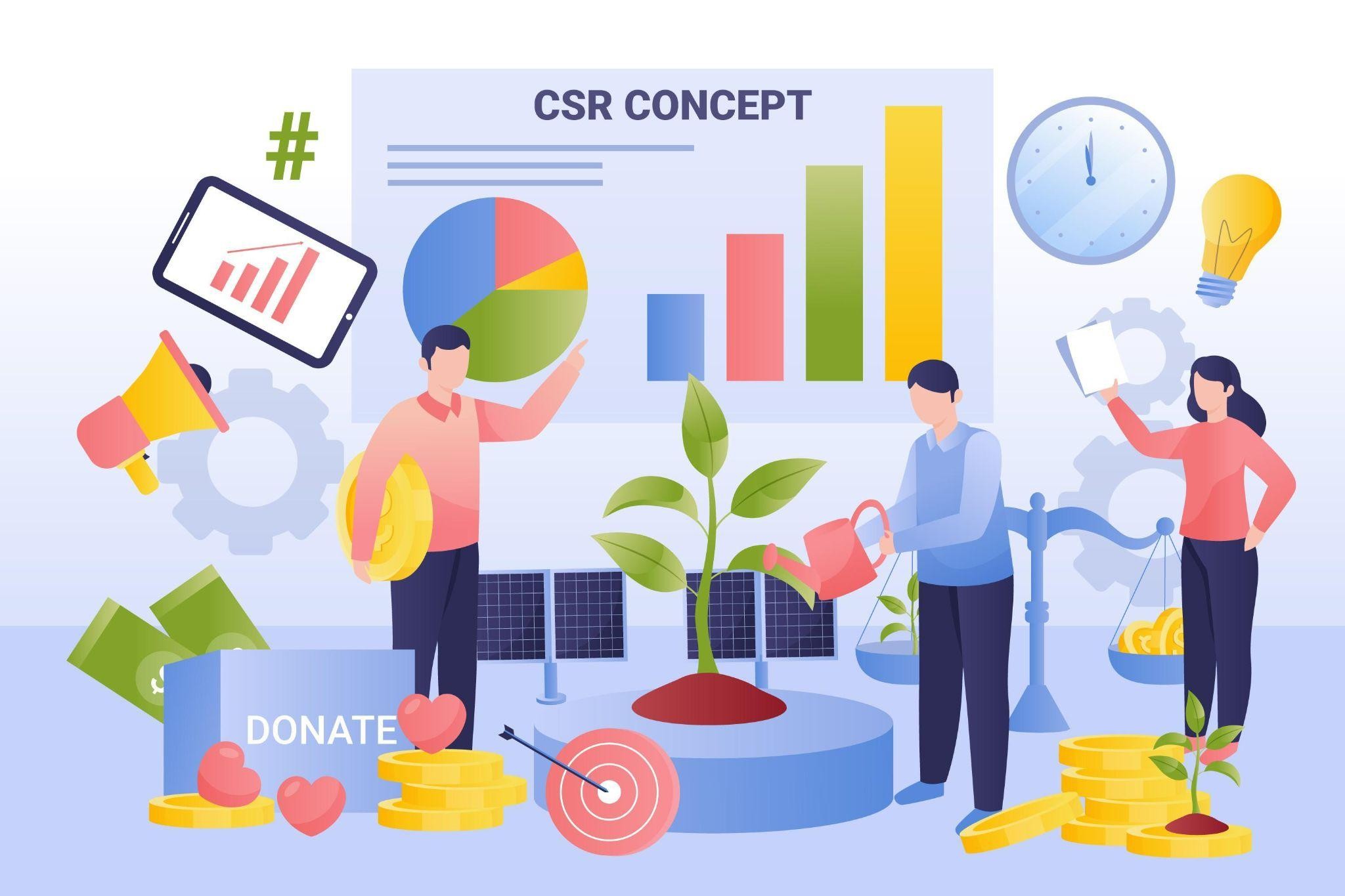
Effective CSR Strategies for Driving Employment and Livelihood Growth
Corporate Social Responsibility (CSR) has evolved beyond philanthropy to become a strategic approach for sustainable development. Among its most impactful contributions is fostering employment and livelihood growth, addressing workforce readiness, and bridging skill gaps. Organizations today recognize that investing in human capital not only enhances economic development but also strengthens communities and business ecosystems. Here’s a closer look at the emerging trends, opportunities, and best practices shaping CSR-driven employment initiatives.
From Charity to Capacity Building: A Shift in CSR Priorities
Traditionally, CSR efforts in employment focused on donations and temporary relief. However, the emphasis is shifting toward long-term capacity building. Companies are integrating employment-driven CSR initiatives into their core operations, ensuring that job creation, skilling, and livelihood support are embedded in their strategic outlook. This transition reflects a broader commitment to fostering self-reliance rather than dependency.
Skills Development: Addressing the Workforce Readiness Gap
One of the most critical aspects of CSR for employment is skills development. With industries evolving rapidly due to automation, AI, and digital transformation, CSR programs must align training with industry demands. Skill-based education initiatives, vocational training, and certifications in high-demand sectors are key strategies that help bridge the workforce readiness gap and make individuals more employable.
Public-Private Collaborations: Strengthening the Employability Ecosystem
No single entity can address the complexities of employment challenges alone. Companies are increasingly partnering with educational institutions, government bodies, and nonprofit organizations to create holistic employability programs. These collaborations enable resource pooling, policy advocacy, and curriculum alignment, ensuring that CSR-driven skilling programs are relevant and scalable.
Inclusive Employment: Broadening Opportunities for Marginalized Groups
Effective CSR strategies prioritize inclusivity, ensuring that marginalized communities, persons with disabilities, and women have access to meaningful employment. From targeted skilling programs to inclusive hiring practices, businesses are playing a crucial role in expanding opportunities for underrepresented groups, fostering economic empowerment, and driving diversity in the workforce.
Digital Empowerment: Leveraging Technology for Greater Reach
The rise of digital platforms has transformed CSR for employment by making skilling more accessible. E-learning, virtual mentorship, AI-driven job matching, and digital literacy programs enable wider reach and higher impact. Companies are integrating digital solutions into their CSR frameworks to offer scalable and cost-effective training, ensuring that beneficiaries are equipped for the digital economy.
Entrepreneurship Support: Fostering Sustainable Livelihoods
Beyond employment, CSR initiatives are also encouraging entrepreneurship to promote self-reliance. Start-up incubators, microfinance support, and mentorship programs are being introduced to empower individuals to build sustainable businesses. By supporting entrepreneurship, CSR programs contribute to job creation, community development, and economic resilience.
Measuring Impact: Ensuring Long-Term Success
A key challenge in CSR for employment is measuring the effectiveness of initiatives. Companies are adopting data-driven approaches to assess impact, track employment outcomes, and refine their programs. Impact assessment tools, beneficiary tracking, and industry feedback mechanisms help ensure that CSR initiatives lead to tangible improvements in livelihood generation.
A Future-Forward Approach to CSR for Employment
The intersection of CSR and employment growth is more critical than ever. As industries evolve, workforce needs shift, and global challenges reshape economies, businesses must adopt forward-thinking, inclusive, and scalable CSR strategies. The goal is not just to provide jobs but to create resilient, adaptable, and thriving workforces.
How can organizations further refine their CSR initiatives to meet the workforce needs of tomorrow? The conversation continues.
FAQs
1.What skills does TeamLease EdTech Foundation emphasize for a career in
the BFSI sector?
We focus on essential skills like digital
banking, financial analysis, data security, risk management, and
customer service. Additionally, we integrate critical soft
skills training—such as ethical decision-making and
communication—to prepare candidates for BFSI’s customer-centric
and compliance-driven environment.
2.How can young professionals benefit from TeamLease EdTech Foundation’s
BFSI training programs?
Through targeted training,
mentoring, and hands-on learning experiences, our curated BFSI
programs ensure participants gain both technical and practical
skills. Our industry-aligned approach equips young professionals
to confidently enter BFSI roles with relevant, job-ready
capabilities.
3.Why is ethical training a priority in TeamLease EdTech Foundation’s
programs for BFSI?
In BFSI, handling sensitive information
and ensuring compliance is crucial. Our programs emphasize
ethical practices and integrity to foster trust and
responsibility in young professionals, helping them build
long-lasting careers rooted in reliability and accountability.
4. How does TeamLease EdTech Foundation leverage technology in BFSI
training?
We incorporate digital tools and simulated
learning environments into its BFSI training. This tech-driven
approach allows learners to gain practical experience with tools
used in banking and finance, making the transition to real-world
roles smoother and more effective.
5. How does TeamLease EdTech Foundation reach youth in underserved
communities for BFSI skilling?
By partnering with local
organizations and adopting hybrid training models, we have
expanded our reach into rural and semi-urban areas. This
inclusive approach ensures that youth from diverse backgrounds
have equitable access to BFSI skilling opportunities,
contributing to a more inclusive workforce across the sector.




